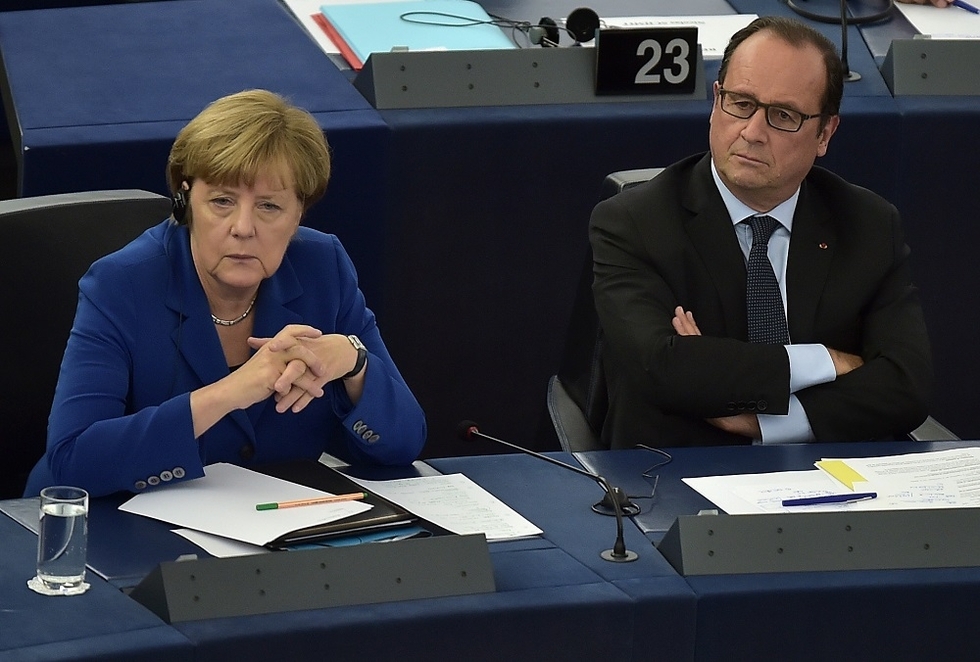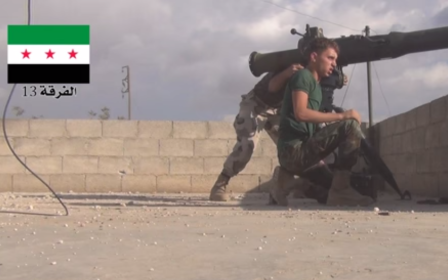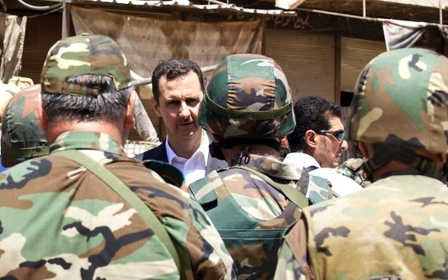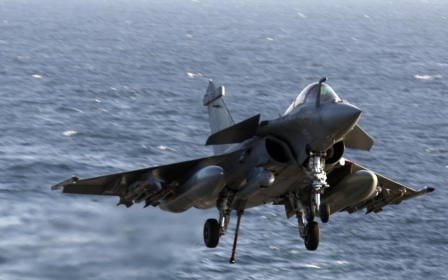Hollande warns of 'total war' if no action taken in Syria

Failure to act in Syria risks stoking a "total war" in the Middle East, French President François Hollande said in a landmark speech to the European Parliament alongside German Chancellor Angela Merkel.
"What happens in Syria concerns Europe, what happens there will determine the balance of the whole region for a long time," Hollande told European lawmakers in Strasbourg.
"If we leave these religious clashes between Sunnis and Shias, they will grow. Don't think we will be sheltered, this will be a total war."
Hollande, whose country has launched airstrikes against the Islamic State group in Syria, appeared to criticise Russia for its air attacks in support of President Bashar al-Assad's regime.
"We have to construct in Syria, with all those who can contribute, a political future which gives the Syrian people an alternative to Bashar or Daesh," Hollande said, using another name for IS.
Hollande and Merkel were giving the first joint speech to the European Parliament by the leaders of France and Germany since François Mitterrand and Helmut Kohl in 1989.
'End of Europe'
Hollande warned that an influx of refugees, many from Syria, could undermine European cohesion if member nations were not unified in their response.
"There is a humanitarian crisis which we need to confront, with an influx of refugees," he said. "The only solution is a strong Europe.
"We need not less Europe but more Europe. Europe must affirm itself otherwise we will see the end of Europe, our demise."
Merkel echoed Hollande's statement warning of the consequences of unilateral action by member states.
"In the refugee crisis, we must not succumb to the temptation of falling back into national action. Quite the contrary, now we need more Europe," Merkel said.
"We must see them (migrants) as people, whether they have the prospect of remaining or not. Humanitarian standards of accommodation and claim processing must be upheld."
She then went on to say that Europe needs to rewrite its "obsolete" asylum rules to tackle the crisis as European warships went into action against people smugglers in the Mediterranean.
"Let's be frank. The Dublin process, in its current form, is obsolete," Merkel said, in reference to the process which has until now dictated EU asylum procedures.
"I appeal for a new procedure" to redistribute asylum seekers "fairly" throughout the 28-nation EU bloc, she said.
Merkel added: "It is exactly now that we need more Europe. We need courage and cohesion, which Europe has always shown when it was necessary."
Germany is Europe's top destination for people fleeing war and misery in the continent's greatest migrant influx since World War II. The EU's richest economy expects between 800,000 and one million newcomers this year alone.
German authorities said Wednesday that they had registered around 577,000 asylum seekers in the first nine months of the year, a third of whom claim to be Syrian.
EU begins operation against 'mafia of the sea'
The joint address comes as the EU began a military operation to catch migrant traffickers, with European warships patrolling international waters in the Mediterranean to arrest smugglers dubbed the "mafia of the sea".
The European Union's foreign policy chief Federica Mogherini announced last month that EUNAVFOR MED, an operation launched to dismantle the network of smugglers abetting the migrant boat crisis, was to enter its second phase.
The first phase, which essentially entailed compiling and analysing information on the trafficker networks, has been up and running since June.
Six ships are already in place in international waters off the coast of Libya - the departure point for many of the migrant boats - including an Italian aircraft carrier, a French frigate and one British, one Spanish and two German ships.
At least three other vessels supplied by the Belgian, British and Slovenian navies are expected to arrive in the area at the end of October to complete the force, which also include four aircraft and 1,318 personnel.
"We follow the traffickers and want to arrest them and seize their ships," a German captain told AFP, adding that he'll get as close to Libyan waters as he can.
Over the past few weeks, EUNAVFOR MED has identified 20 'escort' boats - the type used by traffickers who take the migrants out to sea in fishing boats and dinghies before leaving them and returning to Libya in the escort boat.
It could have taken action against all of the 17 Libyan and three Egyptian 'escort' boats spotted, had phase two of the operation already been up and running.
On the map, the operation will patrol over 10 areas off the Libyan coast: four along the 12-nautical mile mark which separates international from Libyan waters, and the others further out to sea.
According to the proposals, the whole of the north-western coast of Libya from the Tunisian border to Sirte will be on lockdown, apart from an area directly in front of Tripoli, which will be left open to prevent a total maritime blockade.
New MEE newsletter: Jerusalem Dispatch
Sign up to get the latest insights and analysis on Israel-Palestine, alongside Turkey Unpacked and other MEE newsletters
Middle East Eye delivers independent and unrivalled coverage and analysis of the Middle East, North Africa and beyond. To learn more about republishing this content and the associated fees, please fill out this form. More about MEE can be found here.




